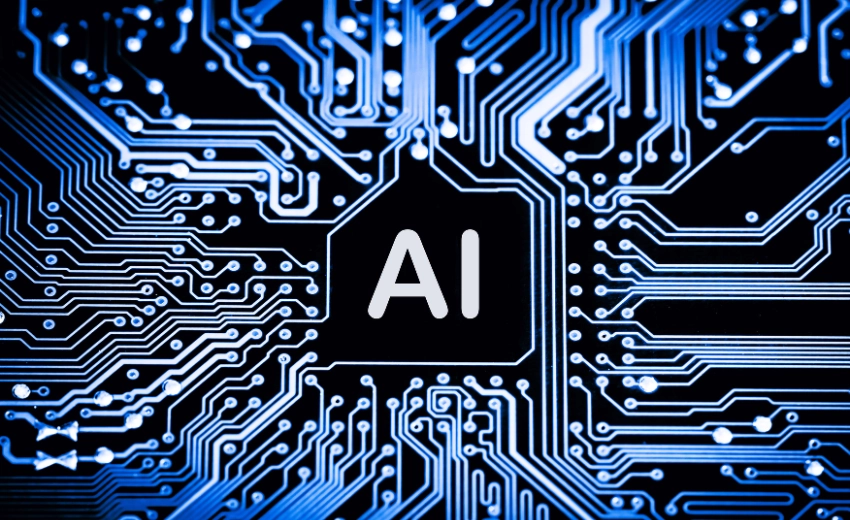The 21st century is witnessing a revolutionary technological transformation, marking the dawn of the AI era. Artificial Intelligence (AI) has moved from being a futuristic concept to an integral part of our daily lives. It’s no longer confined to research labs or tech giants; it’s influencing how we live, work, and interact with the world. AI is reshaping industries and redefining possibilities from virtual assistants to autonomous vehicles. Welcome to the age where machines learn, adapt, and collaborate with humans to create a brighter, more efficient future.
The Journey to AI Dominance
The concept of AI is not new. Its origins trace back to the mid-20th century when pioneers like Alan Turing and John McCarthy laid their foundational principles. However, in recent decades, advancements in computing power, data availability, and algorithm development have propelled AI into mainstream applications.
Key milestones in this journey include:
- Machine Learning Breakthroughs: The development of machine learning (ML) algorithms enabled systems to identify patterns and make decisions based on data, eliminating the need for explicit programming for every task.
- Profound Learning Revolution: Neural networks mimicking the human brain’s functioning have allowed machines to excel in complex tasks like image recognition, language translation, and natural language processing.
- Big Data Boom: The explosion of data from digital platforms has provided AI with the raw material it needs to learn and improve.
- Cloud Computing Advancements: Cloud platforms have democratized access to powerful AI tools, enabling businesses and individuals to leverage AI without massive infrastructure investments.
The Role of AI Across Industries
AI is not just another technological trend but a catalyst driving change across diverse sectors. Let’s explore some of the significant areas where AI is making an impact:
- Healthcare
- AI-powered diagnostics are enhancing the accuracy and speed of disease detection.
- Predictive analytics helps anticipate patient needs and optimize care plans.
- Robotic surgery systems improve precision and reduce recovery times.
- Finance
- AI algorithms analyze market trends for better investment decisions.
- Fraud detection systems identify anomalies in transactions.
- Chatbots provide 24/7 customer support for banking services.
- Education
- Personalized learning platforms adapt to individual student needs.
- AI tools assist educators in grading and administrative tasks.
- Virtual tutors make Learning accessible to students worldwide.
- Transportation
- Autonomous vehicles promise safer and more efficient travel.
- Traffic management systems use AI to reduce congestion.
- Predictive maintenance optimizes fleet management.
- Retail
- Recommendation engines enhance customer experiences by suggesting products based on preferences.
- Inventory management systems predict demand and reduce waste.
- AI-driven chatbots handle customer inquiries effectively.
How AI is Reshaping Society
AI’s impact extends beyond industries; it’s transforming societal norms and everyday experiences:
- Improved Accessibility AI is breaking down barriers for individuals with disabilities. Speech-to-text systems, sign language recognition, and assistive robots create a more inclusive world.
- Smarter Homes and Cities Smart home devices like thermostats and lighting systems adapt to user preferences. At a broader level, AI-driven smart cities optimize energy use, improve public transportation, and enhance public safety.
- Enhanced Creativity AI tools enable artists, musicians, and writers to push the boundaries of creativity. From generating music compositions to crafting compelling visuals, AI collaborates in the creative process.
- Ethical and Philosophical Questions The rise of AI has sparked debates on privacy, job displacement, and decision-making accountability. As machines gain more autonomy, society must address these challenges responsibly.
Opportunities in the AI Era
The AI era brings numerous opportunities for individuals, businesses, and governments:
- Job Creation and Transformation: While AI automates specific tasks, it also creates new roles in AI development, data analysis, and ethical oversight. The key lies in reskilling and adapting to the changing job landscape.
- Boosting Productivity By automating routine tasks, AI frees up time for higher-value activities. This boosts Productivity and innovation across sectors.
- Solving Global Challenges, AI is crucial in addressing pressing global issues such as climate change, healthcare accessibility, and food security. For example, AI models predict weather patterns, optimize renewable energy sources, and enhance crop yields.
- Driving Economic Growth AI-powered solutions drive efficiency and innovation, contributing to economic growth. According to estimates, AI could add trillions of dollars to the global economy in the coming decades.
Challenges and Ethical Considerations
While AI’s potential is immense, its adoption comes with challenges:
- Data Privacy and Security AI systems rely on vast amounts of data, raising concerns about privacy and potentially misusing sensitive information.
- Bias and Fairness AI systems can inadvertently perpetuate biases present in training data. Ensuring fairness and inclusivity in AI models is essential.
- Job Displacement Automation may replace specific jobs, particularly in repetitive and manual tasks. Preparing the workforce for new opportunities through education and training is crucial.
- Regulation and Governance Governments and organizations must establish clear policies to govern AI development and deployment, ensuring accountability and transparency.
Embracing the Future
The dawn of the AI era is an invitation to embrace change and innovation. Here’s how individuals and organizations can thrive in this transformative age:
- Continuous Learning Staying updated with AI trends and acquiring relevant skills is essential. Online courses, workshops, and certifications can help bridge knowledge gaps.
- Collaboration with AI Viewing AI as a partner rather than a competitor fosters collaboration. Leveraging AI tools to augment human capabilities leads to better outcomes.
- Fostering Ethical AI Prioritizing ethics in AI development ensures that technologies benefit humanity. Diverse teams and transparent practices are key to building trustworthy systems.
- Investing in Innovation Governments and businesses must invest in AI research and infrastructure to unlock its full potential. Public-private partnerships can accelerate progress.
Conclusion
Welcome to the AI era—a time of unprecedented opportunities and challenges. As we stand on the brink of this transformative age, harnessing AI responsibly and inclusively is crucial. By mastering AI tools, addressing ethical concerns, and embracing innovation, we can create a future where AI enhances human potential and drives global progress. The journey has just begun, and the possibilities are limitless. Let’s shape the AI era together, ensuring it becomes a force for good in the world.


